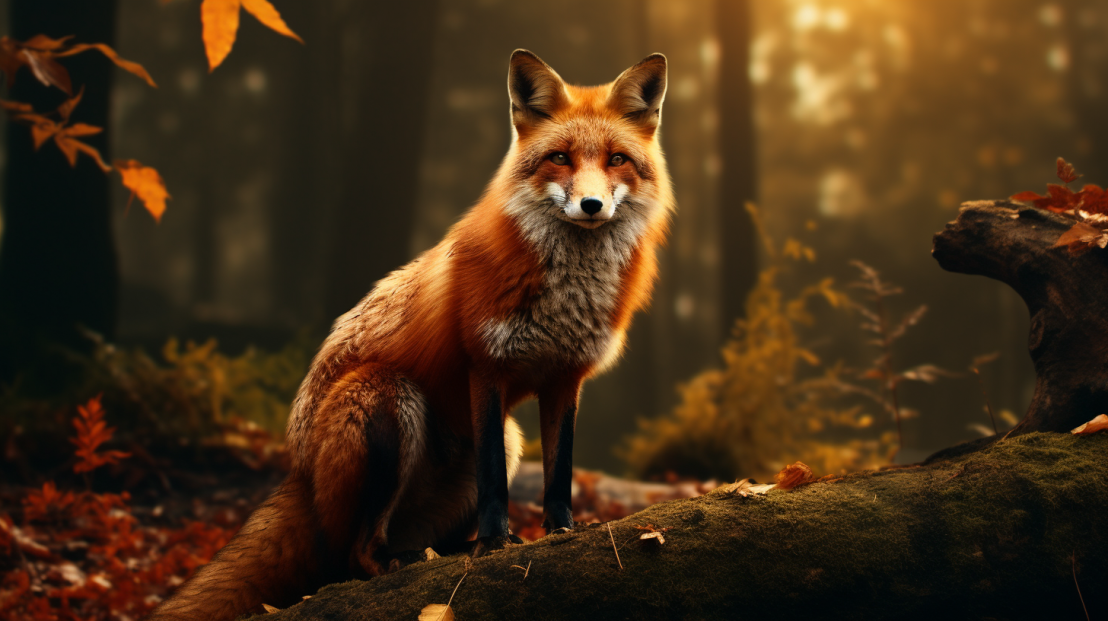The Fox’s Diet: A Versatile Culinary Experience
Foxes are fascinating creatures known for their adaptability, intelligence, and cunning hunting skills. Their diet plays a crucial role in their survival and overall well-being. In this section, we’ll explore the diverse culinary experiences of foxes and the role rabbits play in their diet. Including the fact that foxes do eat rabbits.
1. Understanding the Fox’s Predatory Behavior
Foxes are natural-born predators, and their agility and speed make them formidable hunters. They possess a remarkable ability to stalk and capture their prey with precision. While foxes have a wide range of potential food sources, such as insects, small mammals, birds, and plants, they have a particular affinity for rabbits.
To truly understand why foxes are drawn to rabbits, we must delve into the fox’s predatory behavior. This behavior is a combination of innate traits and learned techniques that they have honed over generations.
Some of the predatory behaviors exhibited by foxes include:
- Stalking: Foxes are adept at stealthily approaching their prey, taking careful and calculated steps to avoid detection.
- Pouncing: Once within striking distance, foxes launch themselves at their targets with swift and precise movements.
- Chasing: When rabbits try to escape, foxes exhibit remarkable speed, using their agility to pursue and catch them.
2. The Nutritional Benefits of Rabbits for Foxes
Rabbits offer a significant source of nutrition for foxes, providing them with the essential elements they need to thrive. Let’s take a closer look at the nutritional benefits of rabbits in a fox’s diet:
i. Protein Powerhouse
Rabbits are a rich source of protein, which is vital for muscle development and maintenance in foxes. Protein helps sustain the fox’s energy levels, ensuring their physical prowess for hunting and survival.
ii. Vitamins and Minerals
In addition to protein, rabbits also contain essential vitamins and minerals that contribute to a fox’s overall health. Some of the key nutrients found in rabbits include:
- Vitamin A: Promotes healthy vision and immune function.
- Vitamin B12: Supports neurological functions and aids in the production of red blood cells.
- Iron: Essential for the transport of oxygen throughout the body.
- Calcium: Crucial for strong bones and teeth.
- Phosphorus: Helps with energy metabolism and cellular functioning.
These nutrients are crucial for the fox’s well-being, ensuring their immune system remains robust and their body functions optimally.
3. Foxes and Rabbits: A Complex Relationship
The relationship between foxes and rabbits goes beyond simple predator-prey dynamics. It’s a complex interaction shaped by both instinct and adaptation. Let’s explore the multifaceted aspects of the connection between these two species.
i. Predatory Instincts vs. Skilled Hunters
Foxes possess inherent predatory instincts, which drive them to hunt rabbits. However, it is important to note that foxes are not mere robotic hunters following their instincts blindly. They are exceptionally skilled hunters, employing various strategies to outsmart their prey.
ii. An Evolved Dance of Survival
The relationship between foxes and rabbits has evolved over time, with both species adapting to one another’s presence. Foxes rely on rabbits as a primary food source, while rabbits have also developed tactics to evade their hungry predators. This dance of survival strengthens the genetic and ecological diversity within their ecosystem.
Rabbits have evolved to be nimble and alert, developing swift movements and enhanced senses to detect potential threats. Conversely, foxes have honed their hunting skills to master the art of capturing rabbits efficiently.
By adapting to each other’s existence, foxes and rabbits create a delicate balance in their natural environment.
Environmental Factors: Influencing Fox Feeding Patterns
Apart from the inherent relationship between foxes and rabbits, environmental factors also play a significant role in shaping fox feeding patterns. Let’s explore some key factors that influence the fox’s diet and the consumption of rabbits.
1. Seasonal Fluctuations in Prey Population
The population of rabbits can vary throughout the year due to factors such as breeding cycles and environmental conditions. This natural fluctuation in prey availability can influence the fox’s feeding patterns. During times when rabbit populations are high, foxes may predominantly hunt and consume rabbits. Conversely, when rabbit populations decline, foxes may need to diversify their diet and target alternative prey.
2. Competition and Alternative Prey
Foxes do not solely rely on rabbits for sustenance. In environments where there is competition for prey, foxes exhibit adaptability by hunting other small mammals, birds, rodents, or even scavenging carrion. This flexibility ensures their survival even when rabbits are scarce. The ability to switch to alternative prey sources demonstrates the resourcefulness and versatility of foxes as hunters.

Coexistence in the Wild: Maintaining Balance
The coexistence of foxes and rabbits in the wild goes beyond a simple predator-prey relationship. Let’s explore the importance of their relationship in maintaining a balanced ecosystem and supporting biodiversity.
1. Natural Regulation of Rabbit Populations
The presence of foxes acts as a natural regulator of rabbit populations. If rabbit populations were to go unchecked, they would potentially overgraze vegetation, impacting the balance of the ecosystem. Fox predation helps control the rabbit population, preventing such imbalances and promoting a more sustainable environment.
2. Harmonious Interactions and Ecological Diversity
The interaction between foxes and rabbits contributes to the overall ecological diversity of an ecosystem. Their presence ensures a harmonious balance between predator and prey, encouraging genetic diversity and enhancing ecosystem resilience. Additionally, the presence of foxes also impacts the behavior and survival strategies of rabbits, leading to evolutionary adaptations that further enrich the ecosystem.
By maintaining a delicate balance between predator and prey, foxes and rabbits support a thriving and diverse natural environment.
FAQ
Q: Do foxes exclusively rely on rabbits as a food source?
A: While rabbits are an important part of a fox’s diet, foxes are versatile predators that can adapt their feeding patterns based on prey availability. They may also consume other small mammals, birds, insects, or scavenged carrion.
Q: How do foxes catch rabbits?
A: Foxes employ their agility, speed, and cunning hunting techniques to catch rabbits. They use stalking, pouncing, and chasing strategies to capture their prey.
Q: Are foxes a threat to pet rabbits?
A: Domestic pet rabbits should be protected from potential predators, including foxes. It is advisable to keep pet rabbits in secure enclosures to prevent interactions with wild foxes.
Q: Are foxes beneficial to the ecosystem besides controlling rabbit populations?
A: Yes, foxes contribute to the overall balance of ecosystems. They help control populations of other small mammals, such as rodents, which can also have ecological impacts if left unchecked.
In conclusion, the dietary habits of foxes revolve around their adaptability as hunters. While they do consume rabbits as a significant food source, their diet is not restricted to just one prey species. Environmental factors influence their feeding patterns, and the relationship between foxes and rabbits contributes to the ecological diversity and balance of their shared habitats. Understanding the nuanced interactions between these fascinating creatures provides us with a deeper appreciation for the complex web of life in the natural world.
Hey there, fellow nature enthusiasts! I’m Mark Gray, the passionate owner of OutdoorAnimals.com, a hub dedicated to uncovering the incredible world of outdoor animals. Whether you’re a hiker, a four-wheeler, or just someone who revels in the beauty of the great outdoors, you’re in the right place. I seek to understand all varieties of animals, from the great elk to the simple mouse, my goal is to write and share this knowledge with the public.

